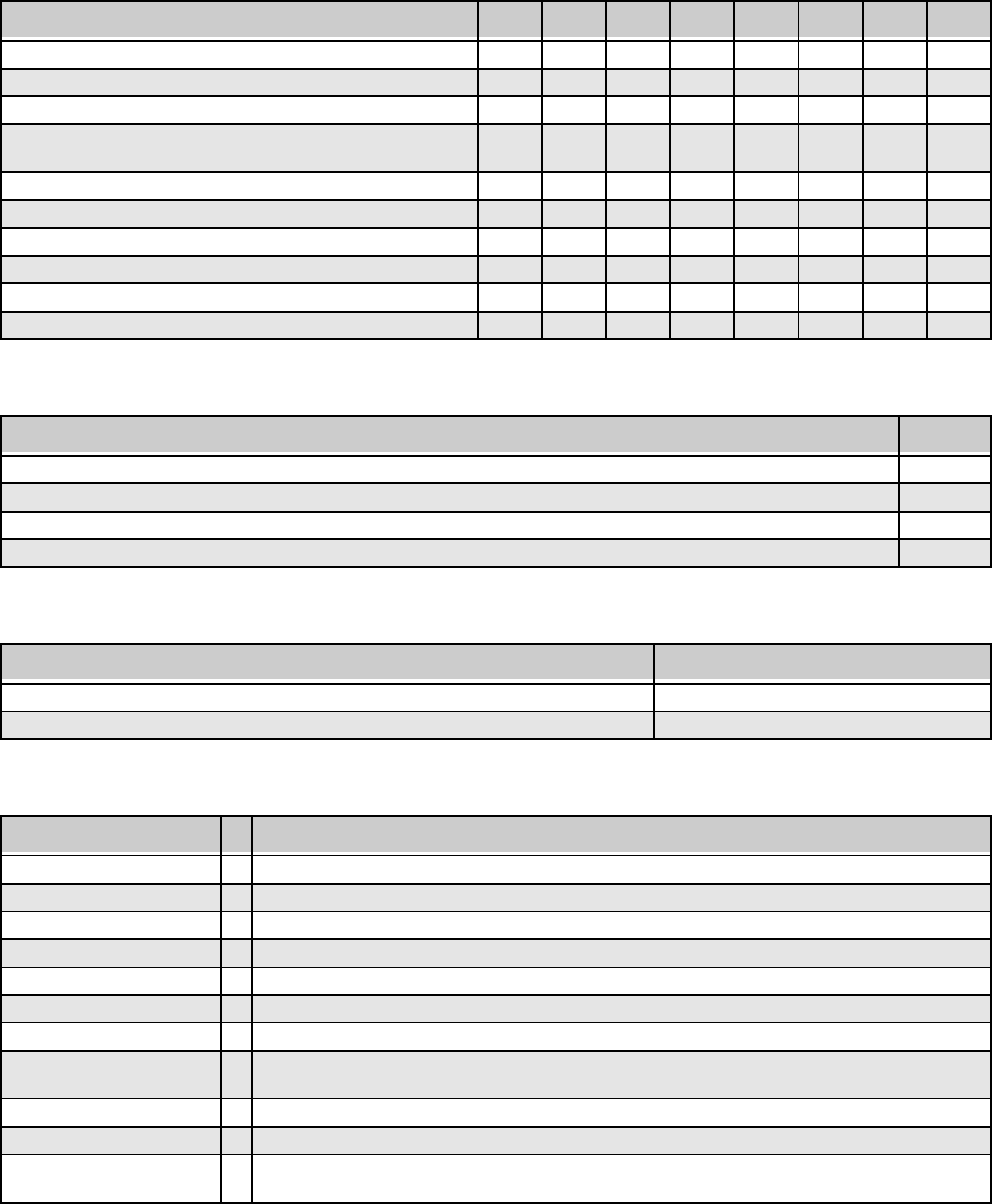
ECE 6101 (Approved): Computer Communication Networks
Course Description
Foundational understanding of network analysis, error-control, routing, congestion-control, multi-access, and
their examples in the context of the existing communication networks.
Prior Course Number: ECE 861, ECE 862
Transcript Abbreviation: Comp Comm Networks
Grading Plan: Letter Grade
Course Deliveries: Classroom
Course Levels: Graduate
Student Ranks: Masters, Doctoral
Course Offerings: Autumn
Flex Scheduled Course: Never
Course Frequency: Every Year
Course Length: 14 Week
Credits: 3.0
Repeatable: No
Time Distribution: 3.0 hr Lec
Expected out-of-class hours per week: 6.0
Graded Component: Lecture
Credit by Examination: No
Admission Condition: No
Off Campus: Never
Campus Locations: Columbus
Prerequisites and Co-requisites: Prereq: 6001 (804), Stat 3470 (428), 520, Math 530, or another
undergraduate course in Probability.
Exclusions: Not open to students with credit for 861, 862, CSE 6461, 861, or 862.
Cross-Listings: Cross-listed in CSE 6461.
Course Rationale: Existing course.
The course is required for this unit's degrees, majors, and/or minors: No
The course is a GEC: No
The course is an elective (for this or other units) or is a service course for other units: Yes
Subject/CIP Code: 11.0901
Subsidy Level: Doctoral Course
Course Goals
Be exposed to a basic history of networking
Be familiar with architectural concepts of layering and circuit and packet switching
Master various error control techniques and their analysis
Be familiar with different queuing models and their application to networking
Master concepts in shortest path routing including analysis of correctness, convergence, and complexity, asynchronous routing
protocols, routing on the Internet, and routing on other historical networks
Be familiar with window-based flow control and its analysis using closed queueing networks
Be familiar with TCP congestion control and its advantages and disadvantages
Be familiar with multi-access systems such as polling and random access
Be exposed to some of the open research problems in networking

Course Topics
Grades
Representative Textbooks and Other Course Materials
ABET-EAC Criterion 3 Outcomes
Topic Lec Rec Lab Cli IS Sem FE Wor
Historical Perspective in Networking 2.0
Circuit/Packet Switching and Statistical Multiplexing 1.0
Importance of Layering for Network Architecture 1.0
Description of Error Detection, Correction, and Recovery
Mechanisms
1.0
Analysis of Error Recovery Mechanisms 3.0
Network Dimensioning and Elementary Queuing Analysis 10.0
Fundamentals of Routing 7.0
Internet Routing 2.0
Flow/Congestion Control 7.0
Multi-access Resource Shared Networks 8.0
Aspect Percent
Homework 20%
Project 20%
Midterm 25%
Final 35%
Title Author
Telecommunication Networks: Protocols, Modeling, and Analysis Mischa Schwartz
Communication Networks: Fundamental Concepts and Key Architectures A. Leon-Garcia and I. Widjaja
Course Contribution College Outcome
*** a An ability to apply knowledge of mathematics, science, and engineering.
b An ability to design and conduct experiments, as well as to analyze and interpret data.
c An ability to design a system, component, or process to meet desired needs.
d An ability to function on multi-disciplinary teams.
** e An ability to identify, formulate, and solve engineering problems.
f An understanding of professional and ethical responsibility.
* g An ability to communicate effectively.
h The broad education necessary to understand the impact of engineering solutions in a global and
societal context.
** i A recognition of the need for, and an ability to engage in life-long learning.
j A knowledge of contemporary issues.
*** k An ability to use the techniques, skills, and modern engineering tools necessary for engineering
practice.
Additional Notes or Comments
Corrected typo in text, 4/3/12.
Prepared by: Betty Lise Anderson
